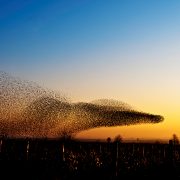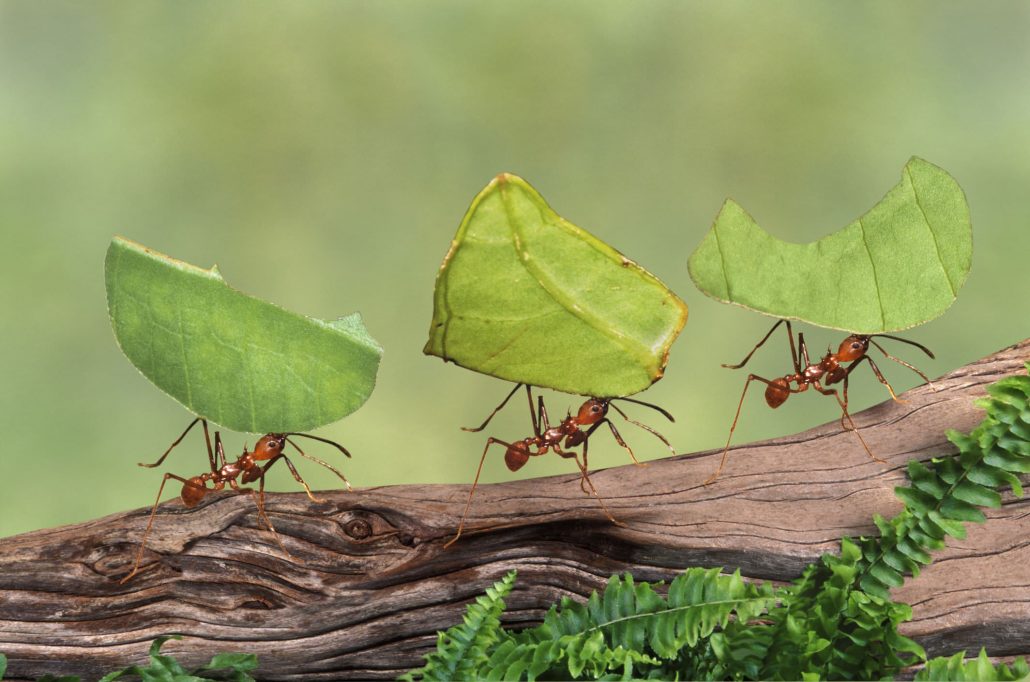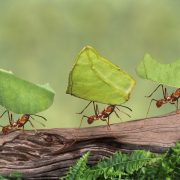Five Real World Examples of Spontaneous Order
Commenting on spontaneous order, Hunter Hastings once wrote:
“As humans, we are a product of spontaneous order, specifically of a version of spontaneous order that we call evolution. With no plan and no planner, innovations (genetic mutations) occur randomly, are tested in the marketplace of survival, and the most successful going forward. The outcome has been beneficial for the entire species.”
This concept of spontaneous order, or emergent order as it is sometimes called, was made popular by economist F.A. Hayek who believed that the economy was far too complex for one single individual to comprehend. But this concept often frightens those who think that governments should be regulating and controlling the market.
What many fail to recognize is that spontaneous order not only exists in the marketplace, examples of it exist all around us in the real world. The following are five examples of spontaneous order appearing in everyday situations.
Music Festivals
At music festivals, where alcohol is sold in abundance, predators come in the form of rowdy dancers who may not be completely aware of their surroundings. But again, without any preplanning, the crowd is able to swerve and sway and hold space in order to protect themselves. And while it appears to be done as a group it is not. As Strogatz says, “Even though it looks like they’re thinking as a group, they’re not.” Read more about spontaneous order existing all around us here.
Ridesharing
When the sharing economy began rising to prominence in the marketplace, it was virtually unregulated. Its existence was born of the consumer’s desire for higher quality transportation.
Prior to Uber and Lyft, consumers were not left with many choices when it came to hailing a taxi. Cabs had been the only game in town for over 80 years. The traditional cab companies had not had to deal with competition before, therefore, they had no real reason to innovate.
But this void in the market left a natural opening for spontaneous order to occur. Without asking for permission, companies like Uber and Lyft were able to grow their own free market legacies. And the consumers were grateful. Read the full article here.
Band Practice
During my formative years, I had a front row seat to many “jam” sessions as they were called, where spontaneous order was all around me.
Without planning or structure, I would watch my friends make incredible music. The drummer would be keeping the rhythm while the two guitarists wailed on their instruments. The bass player keeping harmony while the singer made up lyrics on the spot. Each session lacked order and structure, and it was absolutely fabulous.
It always fascinated me that five individuals come together without a plan, and still manage to make incredibly sounding music. The answer for this, I would later discover, came from the economic principle of specialization. Read more about bands and specialization here.
Language
The ability to form complex languages is what separates humans from all other living species. And language, like markets, spontaneously derive from necessity, whether of a good or service or of communication. And just as humans are anxious to exchange money for desired goods and services, so are they eager to communicate with others to facilitate the exchange of ideas. But neither scenario requires any action from any central authority.
The English we speak today is different than the English used by our Founding Fathers. But these organic changes occurred in the absence of a central authority controlling and dictating the terms. And yet, considering all this, somehow we are still able to communicate with each other. Read more about the English language and spontaneous order.
Ants
Just as humans have spontaneously created language as a means of guiding our actions in cooperation with others, so have ants learned to communicate with each other to achieve the most productive possible results. Rather than obeying some central authority, as is often believed, ants rely on pheromones and hydrocarbons— described by the dictionary as being “a compound of hydrogen and carbon, such as any of those that are the chief components of petroleum and natural gas.” In short, these signals serve as a language used between these ants to communicate with each other.
It is this system, or lack thereof, that has allowed these resilient creatures to survive, albeit to the dismay of many annoyed humans. Since each ant is armed with its own knowledge of the environment surrounding them, they are best suited to warn others. If there were a leader of an ant colony, this survival system would crumble to the ground because one ant, just like one single person, is incapable of knowing everything.
It seems almost silly, then, that the animal kingdom is wiser than humans when it comes to emergent order.










